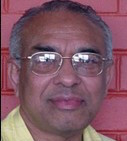Is Sri Lanka Descending Towards Kakistocracy?
On the eve of Sri Lanka’s independence in 1948 and in the immediate aftermath of that landmark event the island was an envy of many of its Asian neighbours. Domestic harmony and economic prosperity with a democratic polity was a rare combination in the Asian region at that time. Sri Lanka inherited from the British a healthy economy with a strong foreign balance, a robust democratic constitution reflecting the country’s pluralism and an efficient civil service. When Lee Kwan Yew visited the island in the early fifties he was amazed at the standard of living of the Sri Lankans and the level of development of the nation, and wondered whether the Singaporeans would ever reach that level. However, the very same Lee turned around later in the 1980s and warned Singaporeans, as soon as he detected symptoms of Chinese political chauvinism raising its ugly head, and pointed to them the way Sri Lanka was descending fast into an ethnic morass because of chauvinist politics. In a strange twist of history, the late President JR Jayewardene after instigating the 1983 Tamil pogrom aspired to make Sri Lanka another Singapore.
The historic political tranquillity and cosmopolitanism that prevailed even before colonialism has been shattered by deliberately cultivating and nurturing ethnic nationalism. In spite of the military victory over the Tamil separatists, Sinhala-Tamil-Muslim ethnic nationalism has risen to a new crescendo today thwarting every attempt at achieving national harmony and returning to the pre-colonial cosmopolitanism that enriched this splendid island. No amount of re-written constitutions is going to bring peace and political sanity unless the political leaders and their think tanks give up their parochialism and believe in the fundamental truth that this country belongs to all its people irrespective of their ethnic and religious differences. Numerical strength and weaknesses should not be allowed to stand in the way of recognising merit, talent, skill and enterprise. Nepotism, corruptionand the fear of the other have become the bane of this nation in recent decades.
When political aspirants with mediocre talent and questionable personal integrity are eventually empowered to become rulers in a plural society that is a recipe for national disaster. This has been the sorry tale of Sri Lanka’s political destiny over recent decades. Although there had been nominal changes in the personalities of ruling regimes the qualitative decline in their talent, integrity and dedication to the nation has been an observable trend. One should only have to read through the parliamentary Hansards to note the declining quality of the parliamentary debates. What was once a delightful and enlightening source of reference to political observers and university undergraduates and independent researchers have become an embarrassing document of riotous cacophony in print. Is there any better evidence to prove the decent towards a kakistocracy (a Greek term for a government by the most unscrupulous or unsuitable people) than to listen to a foreign minister who pleads total ignorance of foreign affairs?
What can one expect from a system where at the apex institution of the country’s monetary management, the Central Bank, the governor is chosen not because of his or her managerial and financial expertise but because of political allegiance? What can ordinary citizens benefit from a public service in which public servants are underpaid and are therefore more keen to augment their income through personal favours and bribes than to provide dedicated service to the nation? What justice can citizens expect from the national judiciary when the judges themselves are political appointees? The judiciary and the security forces that are supposed to maintain law and order has become totally impotent even to arrest and punish thugs in saffron robes who have become a law unto themselves. Aren’t these evidence of a descent towards Kakistocracy?
On the economic front, while nature has been abundantly kind to this nation justifying the legendary description of a ‘pearl in the Indian Ocean’, that nature’s benevolence has been recklessly squandered and mismanaged with scant regard for costs and benefits. Populist politics has been the driving motive behind many of these projects in recent years. Several development projects have enriched the politicians and their advisors more than the people who are supposed to benefit from them. This may be the reason why in one of the Middle Eastern countries politicians are compared to cucumbers because both quickly get fatten. Mega development projects with substandard professional input and funded by borrowed money have not only turned Sri Lanka into a huge debtor nation but also have endangered its natural environment. The Uma Oya irrigation project is a classic example of this calamity. The people of Bandarawela have been forced to sacrifice their drinking water to quench the thirst of Hambantota farmers. In a latest revelation, this project is proving to be a disaster to the ancient Mahayana Buddha statue at the Dowa Rajamaha Viharaya. Like Uma Oya the Lakvijaya or Norocholai power plant is another fiasco.
What were the government and municipal administrators were doing for years when Colombo, the capital city, was fast converting into a garbage dump in from of their eyes? I am aware of the clean-up campaign undertaken by Gotabaya Rajapaksa under the former regime. Why was that campaign discontinued? What is the use of crying now about the invasion of dengue mosquitoes after allowing rubbish to flood the environment? Doesn’t a stitch in time save nine?


 By
By 